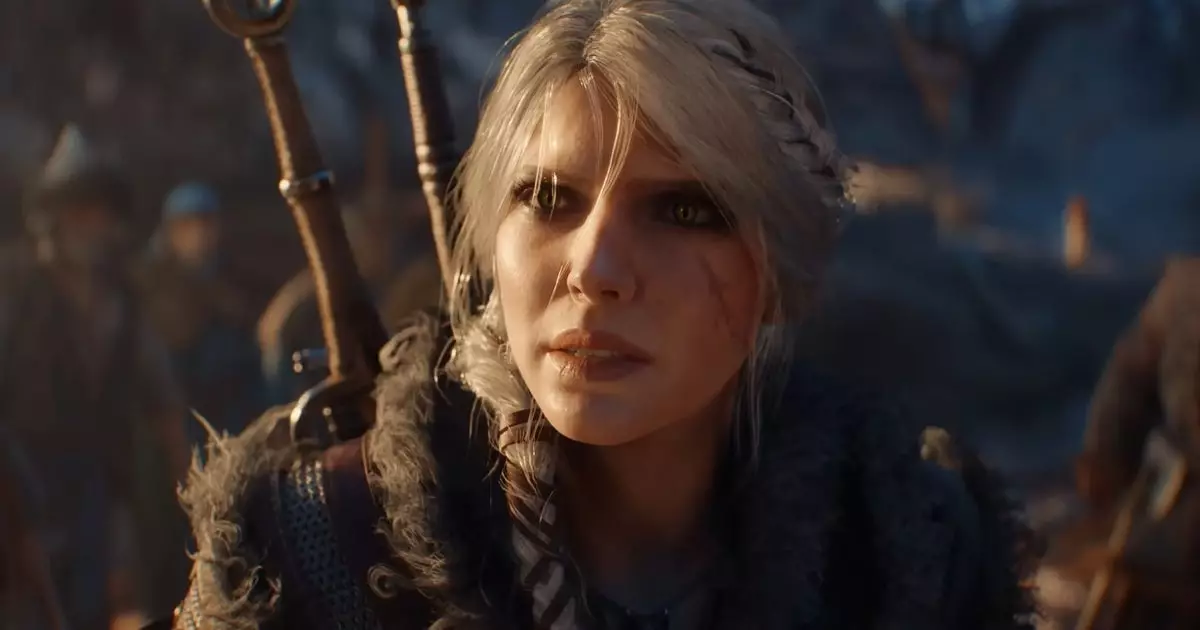As the gaming world holds its breath for “The Witcher 4,” we must face an uncomfortable truth: the highly awaited sequel is a long way from being released, possibly not until 2027. CD Projekt Red, the creative powerhouse behind the franchise, recently conveyed this sobering news during a financial call aimed at enlightening shareholders on the project’s trajectory. The wording was tactful yet clear; any hope of an early launch has been extinguished. By squashing expectations regarding a release before 2026, they have inadvertently made fans question how tight the screws really are in the studio’s development process.
Moving away from pie charts, the insights shared reveal a studio that seems to be in a phase of deep introspection. While many players wish for a quick turnaround, the reality of game development, especially for a franchise as large and beloved as “The Witcher,” necessitates a meticulous approach. Rushing this project to market could yield disastrous results, as history has shown that impatience often leads to disappointing outcomes. “Quality over quantity” should be the mantra, particularly in the age of online backlash and day-one patches.
Corporate Strategies and Ethical Imperatives
The executive team, led by CFO Piotr Nielubowicz, communicated a strategic priority to prioritize shareholder interests. This is not merely a financial decision but a fundamental corporate strategy to ensure longevity in a competitive marketplace. The reminder that they are not ready to disclose specific launch dates reflects a well-calibrated effort to avoid prematurely raising expectations—all while assuring stakeholders that their investment is being placed in capable hands.
However, a notable aspect of the discussion was their stance on using generative AI in development. The cautious tone surrounding AI serves as a microcosm of the ethical considerations that loom in the gaming industry today. The complexities surrounding copyright law and intellectual property rights seem far too substantial to overlook. While some companies rush headlong into leveraging emergent technologies, CD Projekt’s pause for breath signifies a deeper consideration of the implications of AI. It suggests a commitment to integrity and originality, an emerging necessity in a creative landscape increasingly marred by legal disputes and ethical quandaries.
Exploring New Narratives with Ciri at the Helm
The recent trailer for “The Witcher 4” has unveiled a new focal point in the narrative: Ciri, rather than the franchise’s quintessential hero, Geralt of Rivia. Here lies a fertile ground for storytelling that bravely confronts complex themes. With Ciri steering the ship, we can expect discussions around gender roles and sexism within the fantastical realms of The Witcher universe. Such a pivot could allow for nuanced storytelling that resonates with contemporary gamers seeking deeper narratives instead of surface-level action.
This change also includes the return of Gwent, the beloved card game that added layers of strategy to the earlier installments. By reintroducing Gwent, CD Projekt Red is capitalizing on a mechanic that enriched the original games and established an entertaining distraction from traditional RPG gameplay. This decision indicates that they are aware of what fans cherish and signals that they aim to incorporate beloved elements while pushing into new thematic territory.
Grappling with Expectations
For the legion of Witcher fans, the waiting game can feel unbearable. Yet, the knowledge that CD Projekt Red is deliberating its strategies judiciously will hopefully assuage some concerns. The imminent absence of an anticipated timeline offers a rare opportunity for introspection—not just from the creators but from the audience too. Rather than allowing frustration to fester, fans might consider the significance of enjoying the excitement around a forthcoming masterpiece, much like savoring a fine wine that requires time to age.
As we delve deeper into the narrative complexities and ethical considerations of gaming, it becomes crucial to embrace the growth inherent in waiting. The Witcher 4 not only promises a captivating world filled with rich moral dilemmas but will also, we hope, elevate the discourse surrounding modern gaming. Therefore, while the announcement of a later release date may be disheartening, the possibilities that lie ahead are nothing short of exhilarating.

